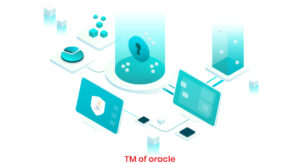Java has been a cornerstone of enterprise software development for decades, providing a stable, reliable, and scalable platform for applications worldwide. However, recent Java license changes have raised concerns and confusion among businesses and developers alike. Oracle, the company overseeing JavaÕs commercial development, has implemented significant modifications to its licensing policies, impacting organizations that rely on Java for their software ecosystems.
The Shift in Oracle Java License
For years, Java was available under a mix of open-source and commercial licensing models. Developers could use Java Standard Edition (SE) freely for personal use, development, and testing. However, Oracle introduced fundamental changes to the Oracle Java License that altered how enterprises access and use Java SE.

In 2019, Oracle moved to a subscription-based model for Oracle JDK, requiring businesses to purchase licenses to receive updates, bug fixes, and security patches. This change marked a significant departure from the previous structure, where updates were freely available for older versions. Many companies, particularly those relying on Java for critical applications, had to reassess their Java strategy to ensure compliance and continued support.
Key Java License Changes Businesses Must Understand
The transition in the Oracle Java License primarily affects organizations that use Java in production environments. Some of the most notable Java license changes include:
1. Subscription-Based Licensing
Unlike earlier models, Oracle now requires businesses to subscribe to its Java SE license on a per-user or per-processor basis. This means enterprises must budget for ongoing licensing costs rather than relying on a one-time purchase. Organizations failing to comply with the Oracle Java License risk losing access to essential updates, potentially exposing their systems to vulnerabilities.
2. Free and Open-Source Alternatives
With the introduction of new licensing terms, many businesses have explored alternative distributions of Java, such as OpenJDK, AdoptOpenJDK, and Amazon Corretto. These versions provide open-source implementations of Java that offer security patches and updates without the commercial licensing fees associated with Oracle Java. Companies considering migration to alternative Java distributions must evaluate compatibility, performance, and long-term support.
3. End of Free Public Updates for Oracle JDK
One of the most impactful Java license changes was the discontinuation of free public updates for older Oracle JDK versions. Organizations that previously depended on free updates now need a paid subscription to receive patches and security fixes. This shift forced businesses to either opt for an Oracle subscription or transition to alternative Java distributions.
4. Licensing for Cloud and Virtual Environments
OracleÕs licensing policies extend to cloud deployments and virtualized environments, making it crucial for organizations to understand how their infrastructure impacts compliance. The Oracle Java License requires businesses to account for every processor or instance running Java, even in virtualized environments, which could lead to higher costs. Companies using Java in cloud-based applications must carefully review their licensing obligations to avoid unexpected expenses.
How Businesses Can Adapt to Java License Changes
Given the significant Oracle Java License modifications, businesses must develop a clear strategy to ensure compliance while minimizing costs. Here are some steps organizations can take to navigate these changes effectively:
1. Evaluate Current Java Usage
Organizations should conduct a comprehensive audit of their Java usage across all applications and environments. Identifying which systems rely on Oracle Java SE and assessing licensing needs will help businesses make informed decisions about whether to continue with OracleÕs subscription model or switch to an alternative distribution.
2. Consider Alternative Java Distributions
As a response to OracleÕs Java license changes, many enterprises have transitioned to open-source Java distributions. OpenJDK, Eclipse Temurin, and Azul Zulu provide viable alternatives that offer long-term support and security updates. Businesses should evaluate these options based on compatibility, performance, and support requirements.

3. Plan for Future Upgrades
With OracleÕs evolving licensing policies, businesses must stay informed about upcoming Java license changes to avoid compliance risks. Establishing a long-term Java strategy that includes regular updates and evaluating future licensing models will help organizations adapt proactively.
Engage with Licensing Experts
Understanding the complexities of the Oracle Java License can be challenging, especially for enterprises with large-scale deployments. Consulting with licensing experts or legal advisors can help businesses navigate the requirements, optimize costs, and maintain compliance with OracleÕs licensing policies.
Conclusion
Java remains a critical technology for enterprises, but recent Java license changes have introduced new challenges that businesses must address. The shift to a subscription-based Oracle Java License requires organizations to carefully assess their Java usage, explore alternative distributions, and develop a proactive strategy to manage licensing costs. By staying informed and adapting to these changes, companies can continue leveraging JavaÕs capabilities while ensuring compliance and minimizing expenses.
As Oracle continues to refine its licensing model, businesses must remain vigilant and flexible to navigate the evolving landscape of Java licensing effectively.







